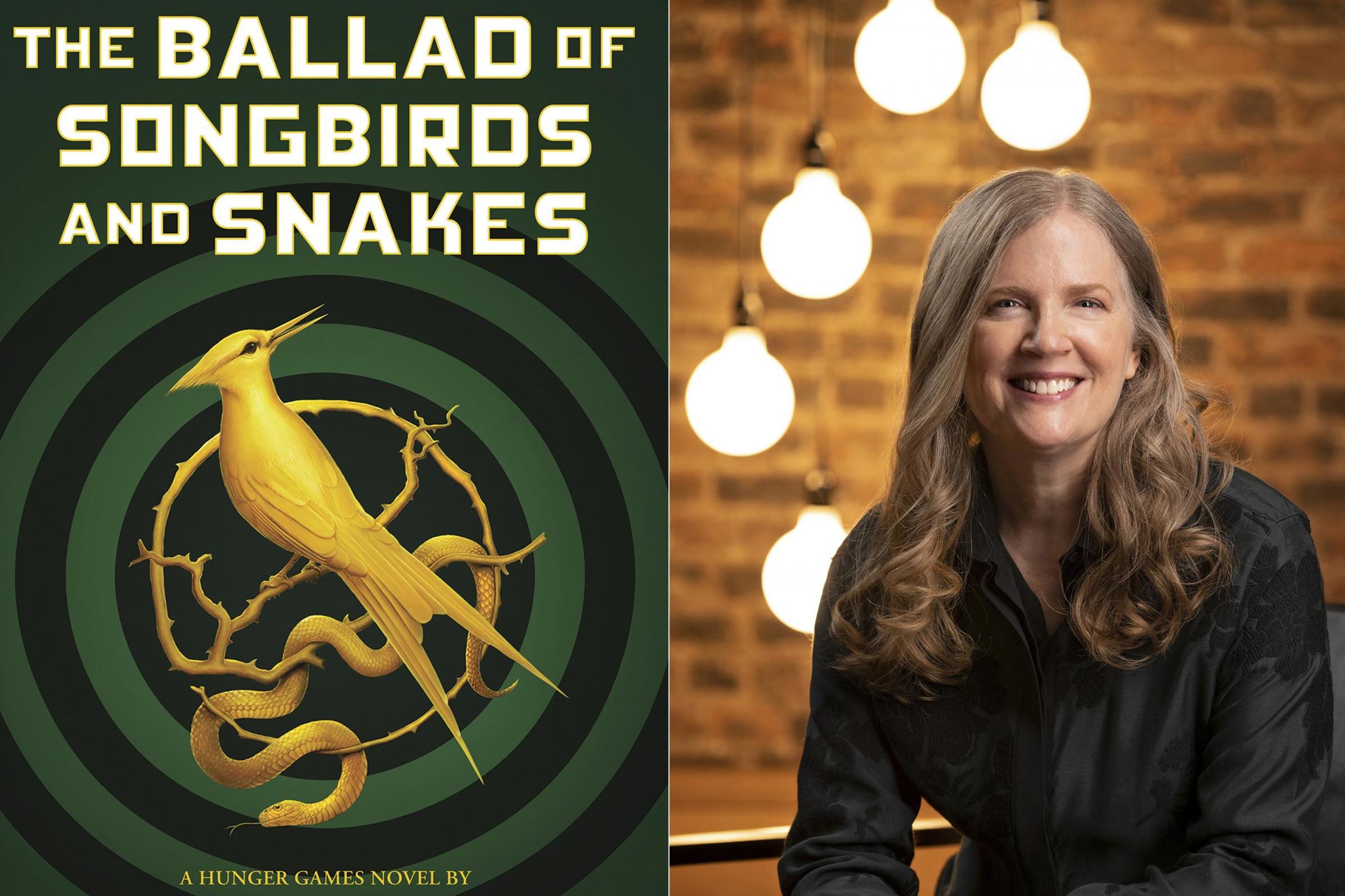Hunger Games prequel: What critics are saying about Suzanne Collins’s ‘The Ballad of Songbirds and Snakes’
Book focuses on President Snow’s early years

Your support helps us to tell the story
From reproductive rights to climate change to Big Tech, The Independent is on the ground when the story is developing. Whether it's investigating the financials of Elon Musk's pro-Trump PAC or producing our latest documentary, 'The A Word', which shines a light on the American women fighting for reproductive rights, we know how important it is to parse out the facts from the messaging.
At such a critical moment in US history, we need reporters on the ground. Your donation allows us to keep sending journalists to speak to both sides of the story.
The Independent is trusted by Americans across the entire political spectrum. And unlike many other quality news outlets, we choose not to lock Americans out of our reporting and analysis with paywalls. We believe quality journalism should be available to everyone, paid for by those who can afford it.
Your support makes all the difference.The first reviews are in for The Ballad of Songbirds and Snakes, Suzanne Collins’s Hunger Games prequel.
The novel, released on Tuesday, focuses on the early years of President Snow (back when he was known as Coriolanus).
It provides more information about the titular Games and the tyrannical regime in place in Panem, a dystopian version of America.
The Ballad of Songbirds and Snakes comes almost 10 years after the release of Mockingjay, the final book in the original trilogy.
Scholastic, the publishing house behind the new novel and the Hunger Games trilogy, decided to maintain the planned launch date despite the coronavirus pandemic, moving to promote the book virtually.
Here is what critics are saying about the Hunger Games prequel:
(Positive)
“As much as this is Coriolanus’s origin story, it is an origin story for the Games themselves, an answer to the questions about their history posed by Katniss in Mockingjay, the final volume of the trilogy: ‘Did a group of people sit around and cast their votes on initiating the Hunger Games? Was there dissent? Did someone make a case for mercy?’
“People who love finding out the back stories in fictional universes — why Sherlock Holmes wears a deerstalker hat; where Indiana Jones got his scar — will relish the chance to learn these details. Here, the Games are still a miserable spectacle, a poor version of the lavish, grotesque extravaganza they will become.” Sarah Lyall
(Positive)
“Whereas it was easy to root for Katniss Everdeen, the heroine of the trilogy, as she battled her way through the Games, it’s harder to do the same for Coriolanus, watching safely from the sidelines. He is ruthless and political throughout in his decisions both to help Lucy in the Games and to further his own designs. Could his heart be softened by Lucy? Could his gentle friend, Sejanus, help him on to a different path?
“The plot of the novel rests on deception and pretence, its view of humanity bleak; yet Collins’s themes of friendship, betrayal, authority and oppression, as well as the extra layers of lore about mockingjays and Capitol’s history, will please and thrill.” Philip Womack
(B-)
“On the level of pure pulp, this book may satisfy any readers who want their Hunger Games to have, well, Hunger Games. Gone is Catching Fire’s All-Star teamwork and Mockingjay’s the-city-is-the-arena sidestep. Here, again, is a no-escape duel of nasty brutishness, with violence only abated by the antics of a parrot in the commentary booth. A parrot! Collins can be funny, man, like Coen Brothers funny. In a flashback to resource-depleted wartime, Coriolanus recalls seeing ‘a titan in the railroad industry’ saw off a dead maid’s leg, and not for decoration. Ballad is a major work with major flaws, but it sure gives you a lot to chew on.” Darren Franich
(Mixed)
Readers who loved the moral ambiguity, crisp writing and ruthless pacing of the first three books might be less interested in an overworked parable about the value of Enlightenment thinking. That's not to say Collins can't or shouldn't work serious moral and political questions into her novels: It's the sheer obviousness that drags, the way that we know what the right answer is supposed to be. Annalisa Quinn
Join our commenting forum
Join thought-provoking conversations, follow other Independent readers and see their replies
Comments